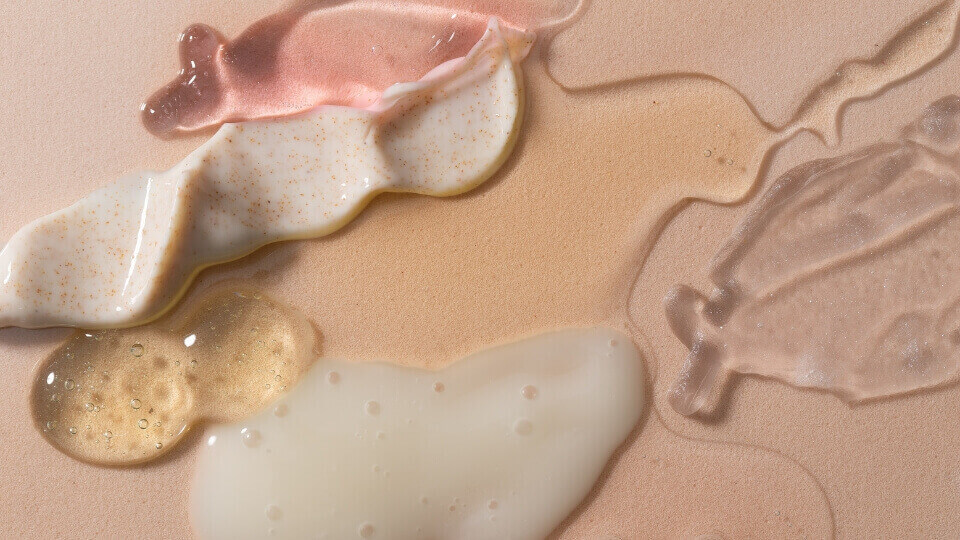
Standing at the crossroads of beauty aisles and dermatologist clinics, you are faced with a decision: over-the-counter convenience or prescription power? Each promise flawless, radiant skin, but the path you choose could mean the difference between frustration and transformation. Let’s cut through the confusion and uncover the facts behind the two skincare options—so you can make the best choice for your skin.
Overview
Over-the-counter skincare includes products that are readily available without a prescription. These products are designed for a wide range of users and address mild skin conditions or minor concerns without the need for medical supervision. They form the foundation of daily skincare routines and can be conveniently found at pharmacies, beauty stores, and through online retailers.
Prescription skincare, on the other hand, is obtained through a consultation for its safe and effective use. These products are typically used for mild skin conditions that have not responded to over-the-counter skincare, as well as moderate to severe skin concerns. Prescription skincare products are essential for more targeted treatment and are obtained through a licensed healthcare provider, like Monderma.
Treatment
Among the most common skin conditions are acne, ageing skin, hyperpigmentation, and rosacea. These conditions vary in severity and respond differently to treatment, ranging from over-the-counter skincare to prescription skincare.
The table below outlines the general treatment approach for different severities of these skin conditions:
| Mild | Moderate | Severe | |
| Acne | Over-the-counter | Prescription | Prescription |
| Ageing Skin | Over-the-counter | Prescription | Prescription |
| Hyperpigmentation | Over-the-counter | Prescription | Prescription |
| Rosacea | Prescription | Prescription | Prescription |
In addition to topical treatment, lifestyle factors such as a healthy diet, proper hydration, and sun protection play a critical role in supporting topical treatment.
Ingredients
Over-the-counter skincare products often include cleansing, and hydrating agents, as well as sunscreen actives, while prescription skincare contains more potent active ingredients such as retinoids and skin lightening agents.
The table below provides an overview of the key ingredients commonly used in over-the-counter and prescription skincare:
| Ingredient | Over-The-Counter Skincare | Prescription Skincare |
| Cleansing Agents | Surfactants: sodium lauryl sulfate, cocamidopropyl betaine Micellar: micelles in micellar water Other: charcoal, clay | Not common |
| Exfoliating Agents | Alpha hydroxy acids (AHA’s): glycolic acid, lactic acid Beta hydroxy acids (BHA’s): salicylic acid Physical exfoliants: microbeads, sugar, fruit | Not common |
| Moisturising Agents | Humectants: hyaluronic acid, glycerin, urea, aloe vera Emollients: squalane, shea butter, jojoba oil Occlusives: petrolatum, lanolin, dimethicone Other: ceramides, panthenol (vitamin B5), linoleic acid, allantoin, aloe vera | Not common |
| Sunscreen Actives | Chemical filters: avobenzone, octinoxate, homosalate Physical filters: zinc oxide, titanium dioxide | Not common |
| Retinoids | Retinol: retinyl palmitate, retinyl proprionate, retinol, retinaldehyde (retinal) | Retinoids: adapalene, tretinoin, tazarotene |
| Lightening Agents | Depigmenting agents: ascorbic acid (vitamin C), kojic acid Plant extracts: alpha arbutin | Depigmenting agents: hydroquinone, tranexamic acid, mequinol |
| Anti-Inflammatories | Plant extracts: azelaic acid (up to 10%) | Plant extracts: azelaic acid (10-20%) Calcineurin inhibitors: tacrolimus, pimecrolimus Corticosteroids: hydrocortisone, clobetasol |
| Antibiotics | Not common | Systemic: clindamycin, dapsone, metronidazole |
| Antibacterials | Keratolytic: benzoyl peroxide (up to 5%), zinc | Keratolytic: benzoyl peroxide (5-10%) |
| Antioxidants | Vitamins: niacinamide (vitamin B3), vitamin E, coenzyme Q10 Peptides: matrixyl, copper peptides | Not common |
| Antiparasitics | Not common | Avermectin: ivermectin |
| Vasoconstrictors | Not common | Alpha-1: oxymetazoline Alpha-2: brimondine |
These ingredients can have multiple properties and can be used for a variety of treatments.
Safety
Over-the-counter skincare uses select ingredients at low concentrations to minimise risks, making it generally safer but less effective than prescription skincare.
Prescription skincare, with their higher-strength ingredients, offer greater efficacy but carry an increased risk of side effects such as dryness, peeling, redness, or tingling, requiring professional guidance. Consulting a healthcare provider ensures a tailored approach, allowing for comprehensive assessment, appropriate product recommendations, and necessary adjustments to strengths.
Cost Considerations
Over-the-counter skincare is generally more affordable and comes in a wide price range to suit various budgets. Cleansers can range from £5-25, moisturisers from £8-40, sunscreens from £10-30, and retinols from £15-50. While premium brands may be more expensive, effective options are available at lower price points, making over-the-counter skincare an accessible choice for routine maintenance and addressing mild skin concerns.
Prescription skincare often carries higher costs due to the inclusion of potent active ingredients and the need for professional consultation, which Monderma has made more affordable through its free online skin consultation. However, prescription skincare can offer long-term cost-effectiveness for moderate to severe skin conditions by delivering targeted and efficient results. This approach reduces the trial-and-error commonly associated with over-the-counter skincare, making it a worthwhile investment for those seeking advanced treatment.
In Conclusion
When it comes to your skincare journey, the choice between over-the-counter simplicity and prescription strength can make all the difference. Over-the-counter-skincare is budget-friendly and great for everyday care, but lacks the power to tackle anything more than mild, and is generally used as maintenance.
Prescription skincare offers transformative results, tailored to your needs with expert support. With Monderma making prescription skincare more accessible and affordable, achieving clear, healthy skin has never been easier.









